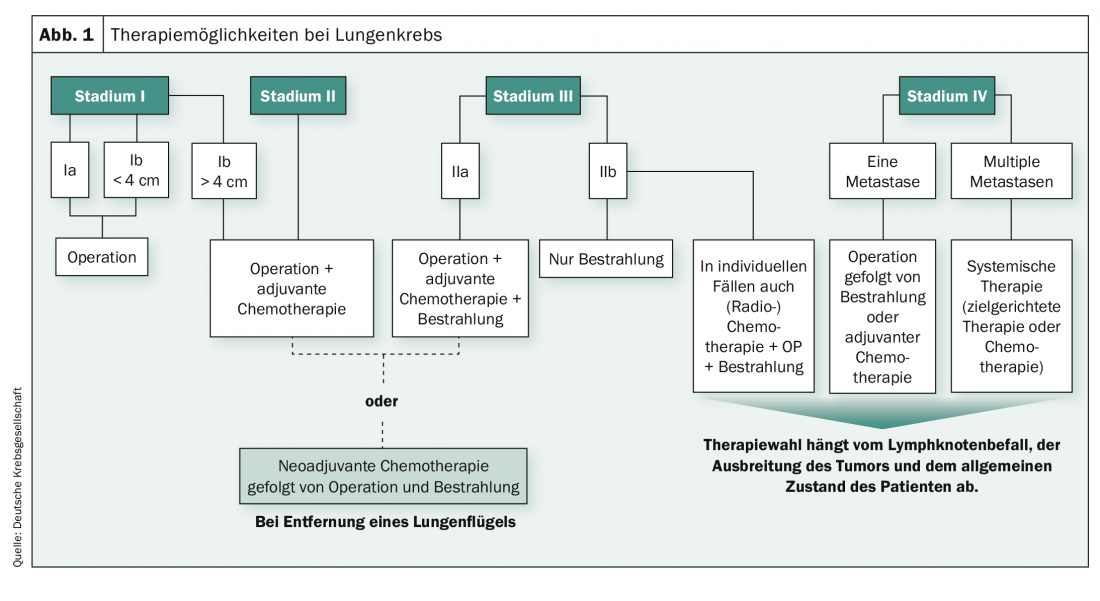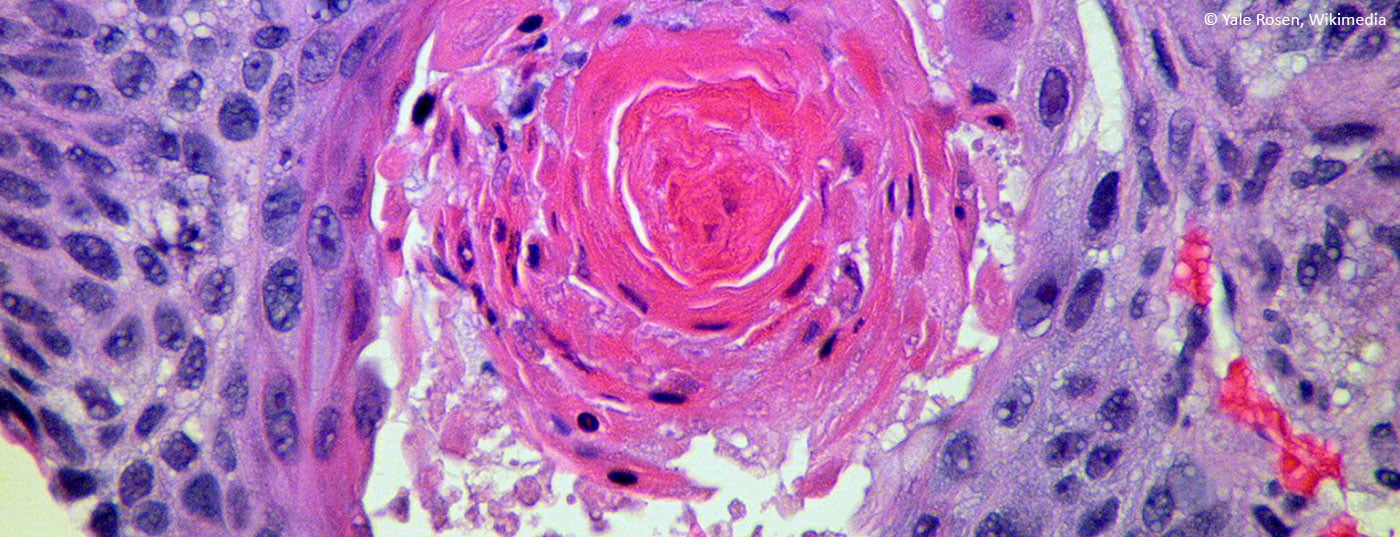The risk of early metastasis complicates the treatment of lung cancer. The use of a system therapy proves to be promising in this context.
The goal of cancer therapy is to improve long-term survival. Patient prognosis also depends on stage, genotype, histology, gender, general condition, and comorbidity. But for NSCLC in particular, the most common type of lung cancer at around 85%*, the choice of treatment options is limited.
Basically, two locally effective procedures are available for the therapy of NSCLC with surgery and radiotherapy. Systemic options include chemotherapy, targeted therapy, and immunotherapy. The different forms of treatment are often used in combination. Especially in early stages, surgery is the method of choice. Radiation and/or adjuvant chemotherapy may follow. From stage IIIB/IV, the prognosis deteriorates significantly. This is where new immuno-oncological therapeutic approaches come into play.

Overall survival benefit from checkpoint inhibitors.
Checkpoint inhibitors do not attack cancer cells directly, but act to control the immune response against the tumor. Tumor cells evade immune attack by strong overexpression of ligands of inhibitory T cell receptors such as programmed cell death receptor-ligand 1 (PD-L1). They bind with PD-1 receptors located mainly on the surface of activated T cells. If these are blocked by PD-1 inhibitors, for example, PD-L1 lose the connection with their receptor. The adequate immune response can occur again.
Approved for the treatment of locally advanced or metastatic non-small cell lung cancer after prior chemotherapy-regardless of histologic subtype-PD-1 inhibitors have been shown in trials to have a superior overall survival benefit with significantly better tolerability compared with chemotherapy [1,2]. In addition, the risk of mortality was also reduced [3,4].
Literature:
- Borghaei, et al: N Engl J Med. 2015 Oct 22; 373(17): 1627-1396.
- Brahmer, et al: N Engl J Med. 2015 Jul 9; 373(2): 123-135.
- Horn, et al: ECC-ESMO Congress 2015; Abstract 3010.
- Reck, et al: ECC-ESMO Congr 2015; Abstract 3011.
* www.esmo.org/content/download/7252/143219/file/EN-Non-Small-Cell-Lung-Cancer-Guide-for-Patients.pdf (last accessed 04/18/2019)
InFo ONCOLOGY & HEMATOLOGY 2019; 7(2-3): 45.











